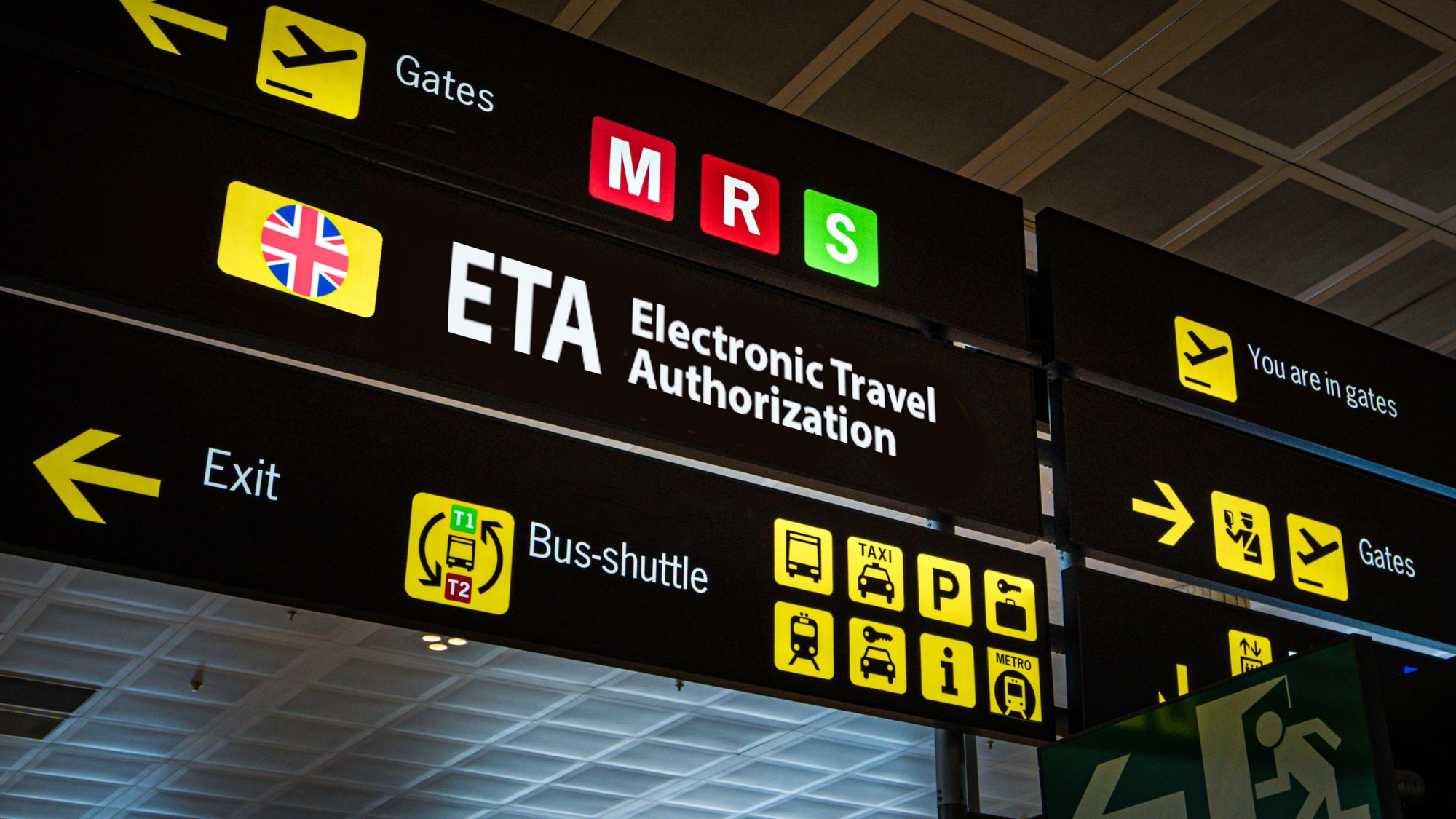The ETA: how new UK travel rules may affect you
'Digital permission to travel to the UK' is designed to be easy to apply for and use, but some have already faced problems

A free daily email with the biggest news stories of the day – and the best features from TheWeek.com
You are now subscribed
Your newsletter sign-up was successful
Most European nationals travelling to the UK from tomorrow will need an Electronic Travel Authorisation (ETA) to do so. And the cost of one is going up this month too.
The ETA scheme has been "slowly rolling out" since it was launched by the UK government in late 2023, said The Times. While all eligible non-European visitors were required to have an ETA from January, the rules will also now apply to eligible European visitors.
However, some Americans have already reported issues with the ETA, suggesting the process "isn't smooth", said The Wall Street Journal. Travellers have shared problems with "uploading photos and scanning their passport" to apply, while others have been hit by "scam or fraudulent websites" with extortionate fees.
The Week
Escape your echo chamber. Get the facts behind the news, plus analysis from multiple perspectives.

Sign up for The Week's Free Newsletters
From our morning news briefing to a weekly Good News Newsletter, get the best of The Week delivered directly to your inbox.
From our morning news briefing to a weekly Good News Newsletter, get the best of The Week delivered directly to your inbox.
What is an ETA?
An ETA is a form of "digital permission to travel to the UK", said Sky News. The UK government says it "strengthens the immigration system's security".
But an ETA is "not a visa", nor does it permit entry into the UK. Instead, it "authorises a person to travel". Those who "do not require a visa" for a short stay in the UK, or who do not yet have UK immigration status, are "required to have one".
The ETA replaces the single-use Electronic Visa Waiver (EVW) scheme and is required for all eligible nationalities.
How much will the ETA cost?
The cost of an ETA is £10 (€12/$12) per person for all travellers. However, from this month, the government has said that will increase to £16.
A free daily email with the biggest news stories of the day – and the best features from TheWeek.com
But beware of fraudulent websites, which scammers have "wasted no time" in setting up, said The Washington Post. Travellers should apply only through the official ETA app or GOV.UK website and always check the sum they are paying.
How will the ETA work?
Once an application has been successfully made, the ETA is linked digitally to the traveller's passport to ensure ease of use.
The ETA is valid for two years, allowing applicants to "travel as much as you need" unless your passport expires in that time, said Forbes.
As part of the application process, individuals will need to answer a series of questions providing personal information and travel intentions. However, applicants will also need to share details about their "immigration history", as well as their criminal history and to "disclose any associations, behaviours, or conduct that might not be conducive to the public good", said Global Law.
A similar scheme was introduced in the United States in 2009 to "help keep out terrorists", said The Wall Street Journal. But the ETA has been "tripping up some travellers and upending vacation plans", particularly for those who have committed a crime in the past.
How to apply for an ETA
To apply for an ETA, the government has set up a mobile app that can be downloaded from the GOV.UK website. Most visitors will be able to apply this way, and their decision will be processed and sent out by email within three days.
The app is said to be the quickest and easiest way to get an ETA, but travellers are also able to apply online.
Who needs an ETA?
The majority of people who do not hold a UK or Irish passport will need an ETA to travel seamlessly into the UK.
However, certain groups will not need one, including those with a visa, permission to live, work or study in the UK, and British or Irish citizens. An ETA is also unnecessary for those passing through an airport, as long as they do not clear border control, as they are considered to be in transit.
There are also exemptions for dual citizens who have British or Irish citizenship, as well as individuals travelling on a British Overseas Territories citizen passport.
Rebekah Evans joined The Week as newsletter editor in 2023 and has written on subjects ranging from Ukraine and Afghanistan to fast fashion and "brotox". She started her career at Reach plc, where she cut her teeth on news, before pivoting into personal finance at the height of the pandemic and cost-of-living crisis. Social affairs is another of her passions, and she has interviewed people from across the world and from all walks of life. Rebekah completed an NCTJ with the Press Association and has written for publications including The Guardian, The Week magazine, the Press Association and local newspapers.
-
 Colbert, CBS spar over FCC and Talarico interview
Colbert, CBS spar over FCC and Talarico interviewSpeed Read The late night host said CBS pulled his interview with Democratic Texas state representative James Talarico over new FCC rules about political interviews
-
 The Week contest: AI bellyaching
The Week contest: AI bellyachingPuzzles and Quizzes
-
 Political cartoons for February 18
Political cartoons for February 18Cartoons Wednesday’s political cartoons include the DOW, human replacement, and more
-
 How travel insurance through a credit card works
How travel insurance through a credit card worksThe explainer Use a card with built-in coverage to book your next trip
-
 Is duty-free shopping worth it?
Is duty-free shopping worth it?the explainer How to determine whether you are actually getting a good deal
-
 3 tips to save for a cruise this year
3 tips to save for a cruise this yearThe Explainer The convenience of a cruise doesn't necessarily come cheap without some strategic planning
-
 UK-India trade deal: how the social security arrangements will work
UK-India trade deal: how the social security arrangements will workThe Explainer A National Insurance exemption in the UK-India trade deal is causing concern but should British workers worry?
-
 Planning a trip? These are 3 budget-breaking mistakes to avoid.
Planning a trip? These are 3 budget-breaking mistakes to avoid.The Explainer Don't accidentally inflate your travel costs
-
 The EU’s new Entry/Exit System: how new European travel rules may affect you
The EU’s new Entry/Exit System: how new European travel rules may affect youThe Explainer Britons will eventually have to pay for a visa waiver as part of the new European Union border checks
-
 Is a travel credit card worth it? How to decide and pick the right one.
Is a travel credit card worth it? How to decide and pick the right one.The Explainer Upsides include travel-related benefits and welcome bonuses
-
 You are now entitled to compensation if your flight is delayed or canceled
You are now entitled to compensation if your flight is delayed or canceledThe explainer So long to the days of vouchers